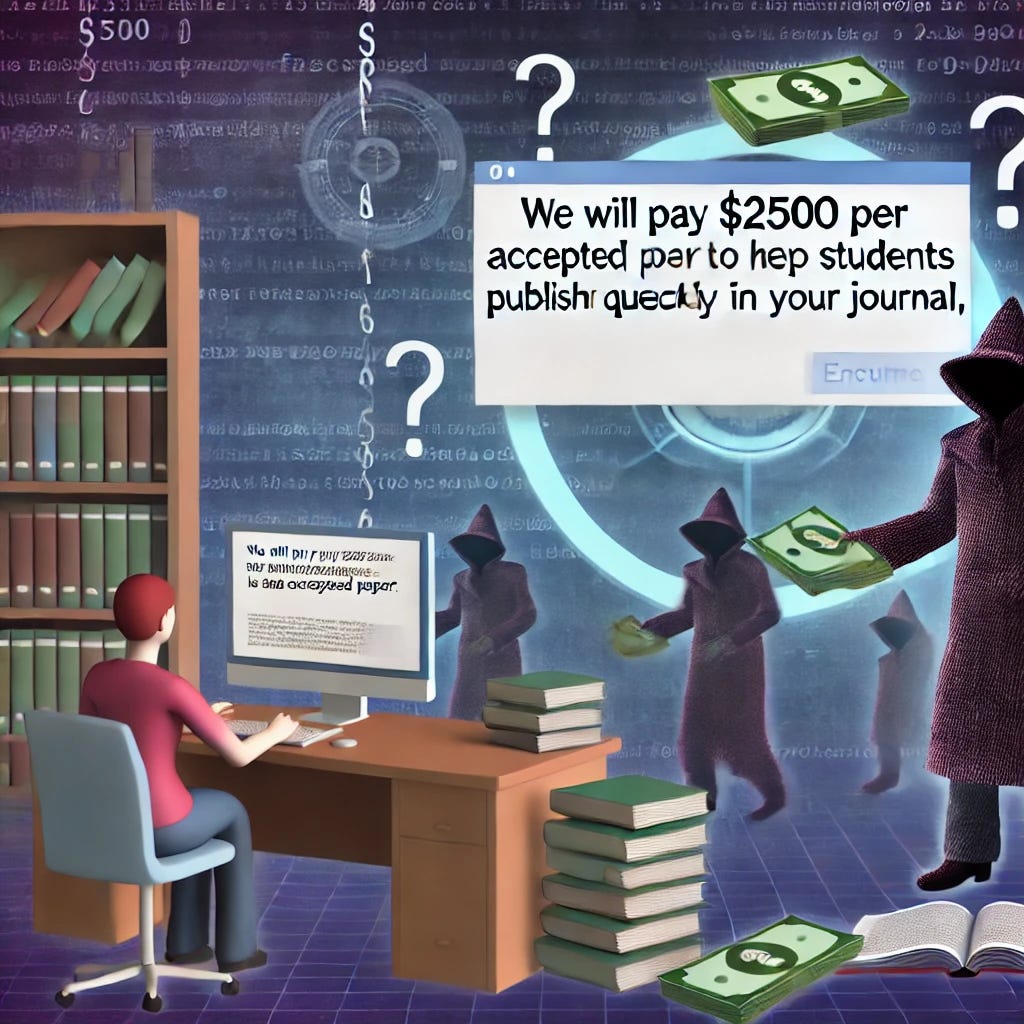On Bribing Editors
A colleague of mine received this email recently, offering him a bribe, as a special issue editor, to accept papers in a highly ranked journal. This is an interesting scam.

Obviously he didn’t accept it, but:
Who else has received these proposals across academia?
Who has accepted?
How widespread is this?
Lee is offering my colleague $2500, how much is Lee being paid?
Would my colleague ever actually get paid? I assume so, since it is a continuing process? But how? Envelopes of cash? PayPal? Amazon Gift Cards?
Why do we create artificial scarcity in the publication process? All valid science should be published in a timely way. There should be no need to bribe your way to the top of the queue.
Unfortunately some people produce bad science. This should be rejected, and for this one might understand the pressure to bribe by (or on behalf of) bad scientists hoping to secure a sinecure by achieving one of the markers of success in science, publication in a highly ranked journal.
This is why we create scarcity and all the other hoops around publication — to avoid False Positives (accepted, but wrong papers), we create too many False Negatives (delayed or rejected, but valid papers). Which risk is higher?
If instead of relying on publication as the marker, we relied on citations (and I mean ‘positive’ citations which favourably recognise and build on the work, not “this paper was wrong, so we need to cite it” citations) or other objective measures of quality, we could eliminate this unnecessary publication bottleneck. We could replace journals with something closer to arXiv, and rely on working papers as the standard means of communication.
Reviewers are still not getting a cut of the action.
How is this any different from what the big publishers do with high Article Publication Charges?
FIN
Keep reading with a 7-day free trial
Subscribe to Transportist to keep reading this post and get 7 days of free access to the full post archives.


